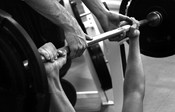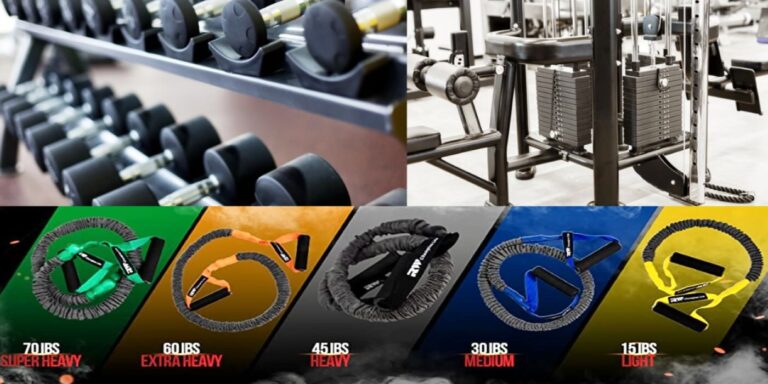 ”I don’t need to go to the gym in order to get large muscles”, said Bret, “I’ll just stay home and use isometrics, I found an old Charles Atlas manual at my parents place.”
”I don’t need to go to the gym in order to get large muscles”, said Bret, “I’ll just stay home and use isometrics, I found an old Charles Atlas manual at my parents place.”
Bret and I had been jogging together for a number of years now and this sudden outburst of his made me laugh for a minute, however, after pondering it for awhile I remembered that some of the other fellow’s at work had been teasing him recently in regards to a fairly large middle age spread that he had developed in the last two years. It had been bothering him I guess but I had not realized just how much until now.
Lunchtime came, so I took Bret aside and proceeded to inform him that I would be more than happy to take him to my gym and teach him how to properly train with conventional weights instead of isometrics as it would be better for him. “Why” he asked, “what’s the difference between the two training methods?”
For those of you who may not know what the term isometric means, it refers to training, which does not involve any movement. For example, an isometric exercise (contraction) on the bench press would involve holding the bar in a stationary position with no up or down movement. Conventional free weight training on the other hand is isotonic and employs actual movement, pressing the bar from your chest to the full extent of your reach and then lowering it back to your chest again.
Fifty years ago Charles Atlas made isometric training famous. His mail-order course was supposed to help the ’90-pound weakling’ from getting sand kicked in his face while on the beach with his girlfriend (remember those old comic book ads). It showed trainees how to get strong without using weights. His Dynamic Tension method as he called it, involved such things as pressing your arms outward against the frame of a doorway or grabbing a doorknob and trying to lift up on it as hard as possible.
Isometrics however has one serious limitation when compared to conventional weight training – there is no way to measure your progress.
If you pull up on a doorknob as hard as you can on Tuesday, how do you know that you are pulling harder next Tuesday, and how much harder are you pulling? The same problem exists while pushing your arms against a doorframe, how hard are you pushing?
 Conventional Free Weights on the other hand enable you to measure your exercise progress over a period of time. For example, you are now able to lift 185 pounds on the bench press while last month you could only lift 155.
Conventional Free Weights on the other hand enable you to measure your exercise progress over a period of time. For example, you are now able to lift 185 pounds on the bench press while last month you could only lift 155.
By training with free weights you are able to continue challenging yourself more and more, whereas isometrics does not really allow this without the use of specialized and expensive equipment that the average individual just cannot afford to purchase.
For this reason I believe that training with conventional free weights (Isotonics) is the better of the two training methods when one is attempting to stimulate more muscle growth.
SPIRITUAL TIP: Take time to consider if your faith experience with God is ISOMETRIC (not involving any movement) or ISOTONIC (measurable, continually challenging and stimulating). Take stock of the things in your life that cause resistance in your spiritual development.
 Derek Beech holds an Associates Degree in Health & Nutrition and has authored a number of books related to this very same subject. Currently, he is working as a human resources manager and personal trainer in Campbell River, BC. Along with his wife he has competed in numerous bodybuilding competitions however, having placed first at the Northern Canadian Bodybuilding Championships earlier this year, he has now decided to take a couple of years off from the competitive scene in order to spend more time with his children, Chris (17) and Kaila (11). If you are interested in learning more about the books he has written or personal training, you may contact him at derekbeech@hotmail.com or www.derekbeech.info
Derek Beech holds an Associates Degree in Health & Nutrition and has authored a number of books related to this very same subject. Currently, he is working as a human resources manager and personal trainer in Campbell River, BC. Along with his wife he has competed in numerous bodybuilding competitions however, having placed first at the Northern Canadian Bodybuilding Championships earlier this year, he has now decided to take a couple of years off from the competitive scene in order to spend more time with his children, Chris (17) and Kaila (11). If you are interested in learning more about the books he has written or personal training, you may contact him at derekbeech@hotmail.com or www.derekbeech.info




